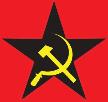SA Reserve Bank badly hurts families and suffocates the economy
26 May 2023
The decision by the South African Reserve Bank announced on Thursday, 25 May 2023, to hike interest rates by 50 basis points will badly hurt families by raising the cost of living and will immediately increase household debt for those who are repaying mortgage bonds, vehicle finance and other loans.
By raising the cost of capital, the SA Reserve Bank will continue to suffocate the already struggling and stagnant economy through suppressing productive capacity expansion in industry and agriculture.
The SACP reiterates its call for a change in monetary and other economic policies with the creation of sustainable, long-term employment, a fundamental target explicitly included in the mandate of and accountability by the SA Reserve Bank.
Radical reduction of poverty and inequality and building and raising the levels of national production to industrialise the economy towards employment creation must be fundamental targets as well.
The South African Reserve Bank cannot stand aloof from the national imperative to turn the country around towards prosperity. Neither must the SA Reserve Bank push a diametrically opposite direction with persistent high levels of unemployment, either synonymous with or part of the inflation targeting policy regime.
The restrictive monetary policy path the SA Reserve Bank follows regardless of its negative consequences while overstating its supposed benefits has now increased the repurchase rate, also known as the repo rate, to 8.25 per cent and the prime rate to 11,75 per cent.
For most South Africans, loans are above the prime lending rate. Here, we are referring to home loans and loans for productive activity linked with creating or supporting employment. Since November 2021, notably during the last local government elections, the SA Reserve Bank has increased interest rates by a sum of 475 basis points.
While the constitution states that the primary object of the SA Reserve Bank as the central bank of the republic is to protect the value of the currency, is it clear that this must be done in the interest of balanced and sustainable growth in the republic. From this, it follows that the SA Reserve Bank has throughout our democratic dispensation dismally failed to secure the goal of its primary object—that is, balanced and sustainable growth.
Unemployment, which is a key macroeconomic indicator, for example, rose to crisis-high levels of above 20 per cent in 1996 after the government adopted the neoliberal policy called Growth, Employment and Redistribution and has worsened with every crisis.
As the SA Reserve Bank hiked interest rates on Thursday, latest figures from the South African Statistics’ Quarterly Labour Force Survey showed that at over 40 per cent the country has an approximately 12 million strong unemployed population in terms of the expanded definition. This is a ticking time bomb.
The overwhelming majority of those affected not only by the crisis-high unemployment level but also by the high levels of poverty and inequality are Africans in particular and black people in general. The youth and women in terms of age and gender respectively are the most affected. The economic problems that South Africans face remain racialised and gendered.
Issued by Alex Mohubetswane Mashilo, SACP Central Committee Member, National Spokesperson, Political Bureau Secretary for Policy and Research, 26 May 2023

